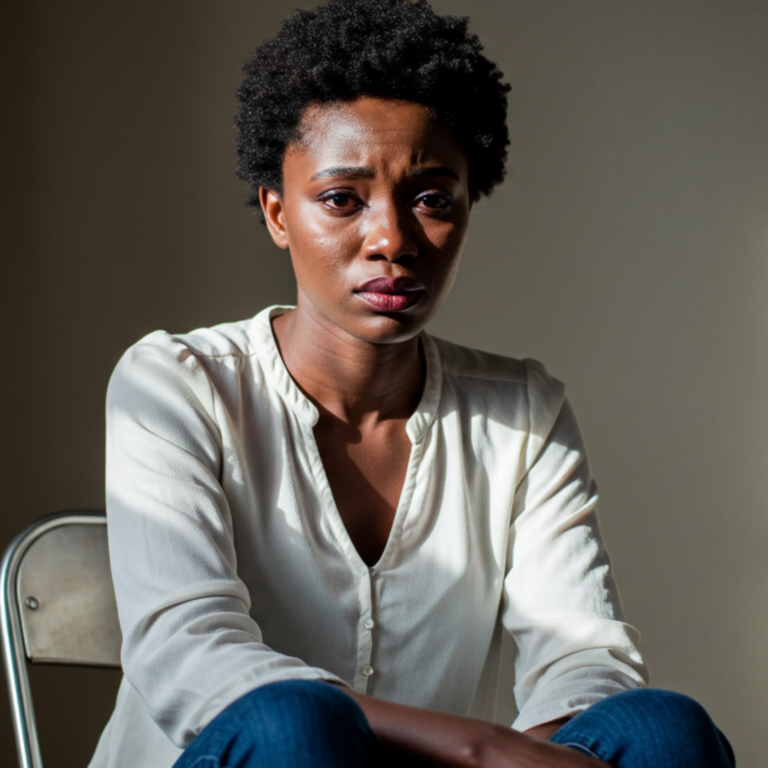In November, a group of young Nigerian women came together to create a WhatsApp group chat, which was supposed to be a “safe space” away from the “noise and banter” in the real world.
However, this space was invaded by a man who entered the group chat posing to be a woman and then publicised the messages in the group. Many critics have said it was an attempt to cyberbully the women in it.
One of the group’s founding members (who we’ll call Kali) tells Zikoko Citizen that the group was the safe space they hoped it would be before it was compromised. On some days, they shared book recommendations and discussed their hobbies, as seen in screenshots by Zikoko Citizen. On other days, they recounted painful sexual assault experiences, finding solace in the knowledge that they had found a community of women who understood their pain.
None of these women suspected that a man was in their space until November 6, when cropped screenshots of messages from this group hit the internet, specifically X.
An X user, @societyhatesjay, shared these screenshots and publicly admitted that he joined the group after posing as a woman.
In the past, Jay has expressed his desire to rape women. In some leaked Whatsapp screenshots, he said, “If I catch her, I’ll rape her”. After facing backlash, he said they were simply “dark humour” and “taken out of context”.
What happened after the screenshots were leaked?
Kali tells Zikoko Citizen that the screenshots were taken out of context with the goal of making the girls victims of cyberbullying. In one of the cropped messages, the X user who shared the screenshots cropped them to suggest that the women in the group hated men and constantly discussed ways to kill them.
Another screenshot suggests that a member of the group chat was planning to kill men and was going to use her brother as a “test lab.”
However, Kali shared screenshots of the full conversation, which shows that the comment was a light-hearted response to a conversation about cooking — a group member who earlier mentioned her love for “experimenting in the kitchen” had sent a follow-up message humorously implying she makes her little brother try out her cooking.
Kali also said that Jay, who went by the name Tamara, tried to trigger certain conversations to “expose” feminists as men haters. According to her, some of those conversations evolved around heavy topics like abortion and rape.
In one of the screenshots Kali shared with us, “Tamara” said, “I hope a gay man rapes him”. Kali believes that the message was intentionally sent to draw out similar comments from other group members which would then be cropped and shared on X to target them and feed into the running narrative against women who identify as feminists.
In some of the screenshots that made rounds on social media, a group member made a comment insinuating that she would have been open to killing men if it wasn’t against the rules of “our father who hath in heaven”.
While Kali insists that most of the group chat messages were misconstrued, some messages’ content was too sensitive to excuse. Kali says that messages like the one above made it easier to question the group’s intention but clarifies that the group wasn’t supposed to promote violence or hatred towards men.
What’s happening to the girls?
Kali tells Zikoko Citizen that most of the girls in the group have been living in fear since the cropped screenshots from the group chat were shared on November 6. It is now nearly one week since the screenshots went viral, so the conversations around them have died down, but these girls are still being body-shamed, slut-shamed and threatened with murder and rape.
She also says that the personal information of some group members like birth certificates, phone numbers, and National Identity Number (NIN) have been spread across the internet and have been used by some people to trace one of the girls.
“Some strange men showed up at one of the girls’ houses after her address was leaked online. The men insisted on seeing her, but the girl’s sister figured out that something was off about them. So she insisted that her sister wasn’t home,” Kali narrates, adding that the girl and her family are thankfully safe for now.
Why is this situation a problem?
We spoke to Emitomo (Nimisire) Oluwatobiloba, a feminist researcher and Sexual Reproductive Health and Rights (SRHR) consultant, to understand the severity of this situation.
She said, “This seems like a targeted attack against a few girls, but they are actually targeting all Nigerian feminists. We can all see that it’s not just cyberbullying or slut-shaming; it has become something more violent for these girls. This is gender-based violence”.
“As a society, we’ve been acting like online or technology-facilitated gender-based violence is an abstract thing but it is very real and just as violent as every other type of gender-based violence,” she said, stressing that it’s also taking the fight against patriarchy and misogyny back because “there are men who have made a brand out of disrespecting women and spreading misogynistic views. Young boys are looking up to these men, and it’s affecting us as a society.”.
A study by UN Women, also confirms Nimisire’s stance on the issue. The 2019 study which was carried out in five Asian countries shows that Online Gender-Based Violence (OGBV) has serious consequences both on the victims and on the society. Research results gotten from the Philippines for instance, show that survivors of OGBV often suffer emotional harm (83%), sexual assault (63%), and physical harm (45%). Results of the study also showed that online harassment in Pakistan has led to cases of femicide, suicide, physical violence, emotional stress, and job loss for women in the country. It also causes many women and girls to silence themselves in online spaces.
What does the law say about cyberbullying and digital rights?
To answer this question, Zikoko Citizen contacted a Nigerian lawyer, who said that “while everyone has a basic right to free speech under Section 39(1) of Nigeria’s 1999 Constitution (as amended), it’s important to note that cyberbullying is a recognised crime in Nigeria.”
The lawyer explains that the Nigerian Cyber Crimes Act updated in 2024, makes it pretty clear that cyber bullying is a serious offence.
According to the Act, if a person is caught sending offensive or threatening messages (or anything meant to annoy, harm, or intimidate someone) online, they could be looking at a fine of up to ₦7 million or a 3-year prison sentence. For those who take it a step further by making people fear for their lives or safety, the penalties jump to a possible ₦25 million fine or 10 years in prison.
The act also gives the court the power to issue restraining orders to protect victims from further harassment.
Cybercrime is still widespread despite these measures; the lawyer believes it’s because people are not really aware it is a crime with heavy consequences
“I believe many people in Nigeria are not aware of these provisions, which may explain why cyberbullying has become widespread. Even many perpetrators do not likely know it’s a sanctionable crime in Nigeria. If they knew they could face legal consequences, maybe many of them would have a rethink or refrain from doing so”, she said.
The lawyer also points out that while cyberbullying is prosecuted as a serious offence in countries like the US, Nigeria has only been able to record a few cases, mostly because the current laws specifically targeting cyberbullying are insufficient, and underdeveloped and make it challenging to prove such cases.
Any update from the authorities?’
So far, it doesn’t seem that appropriate authorities are investigating the matter however Nigerian journalist and feminist, Kiki Mordi has shared that she’s working behind the scenes to push for legal action against him the X user @societyhatesjay who shared the cropped screenshots.
What can we do to control the spread of online gender-based violence and cyberbullying in Nigeria?
According to IREX, A global development & education organisation, there’s a lot that we can do to stop the spread of online violence against women.
- Use your social media platforms to raise awareness about online gender-based violence. Let people know what is and why they should care. You can start by sharing this article.
- Support the collection of data relating to OGBV and its impact on victims by gathering evidence (tweets, public statements, etc) and sharing it with women’s rights activists.
- Raise awareness of the dangers of OGBV and call out injustice wherever you see it.
Editor’s note: This story has been updated.




